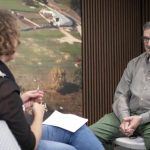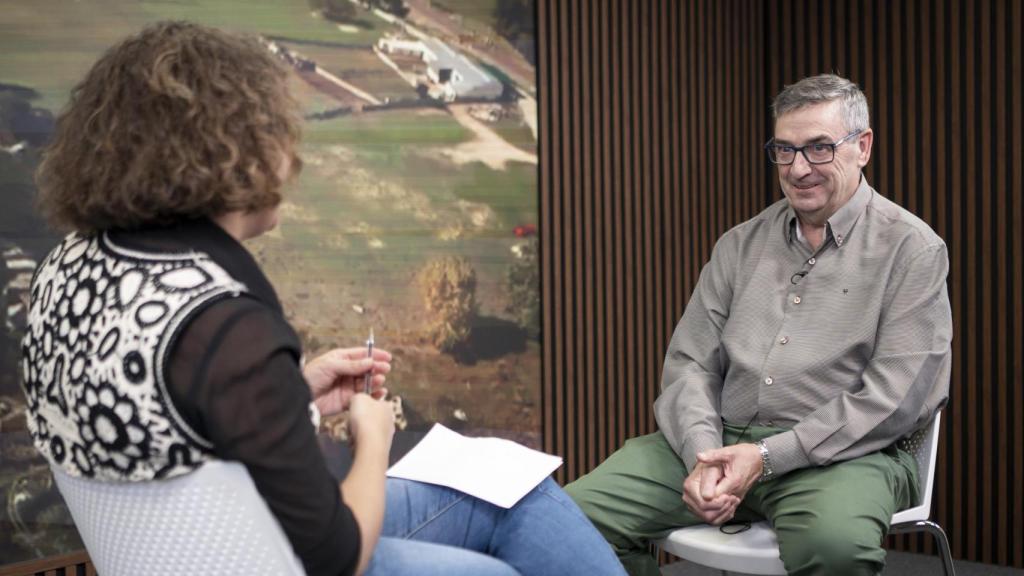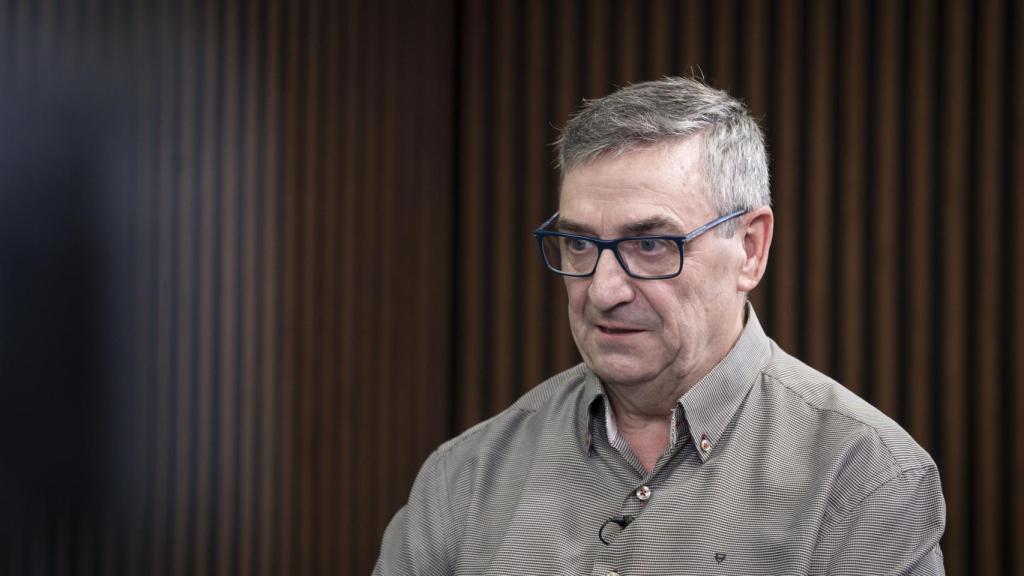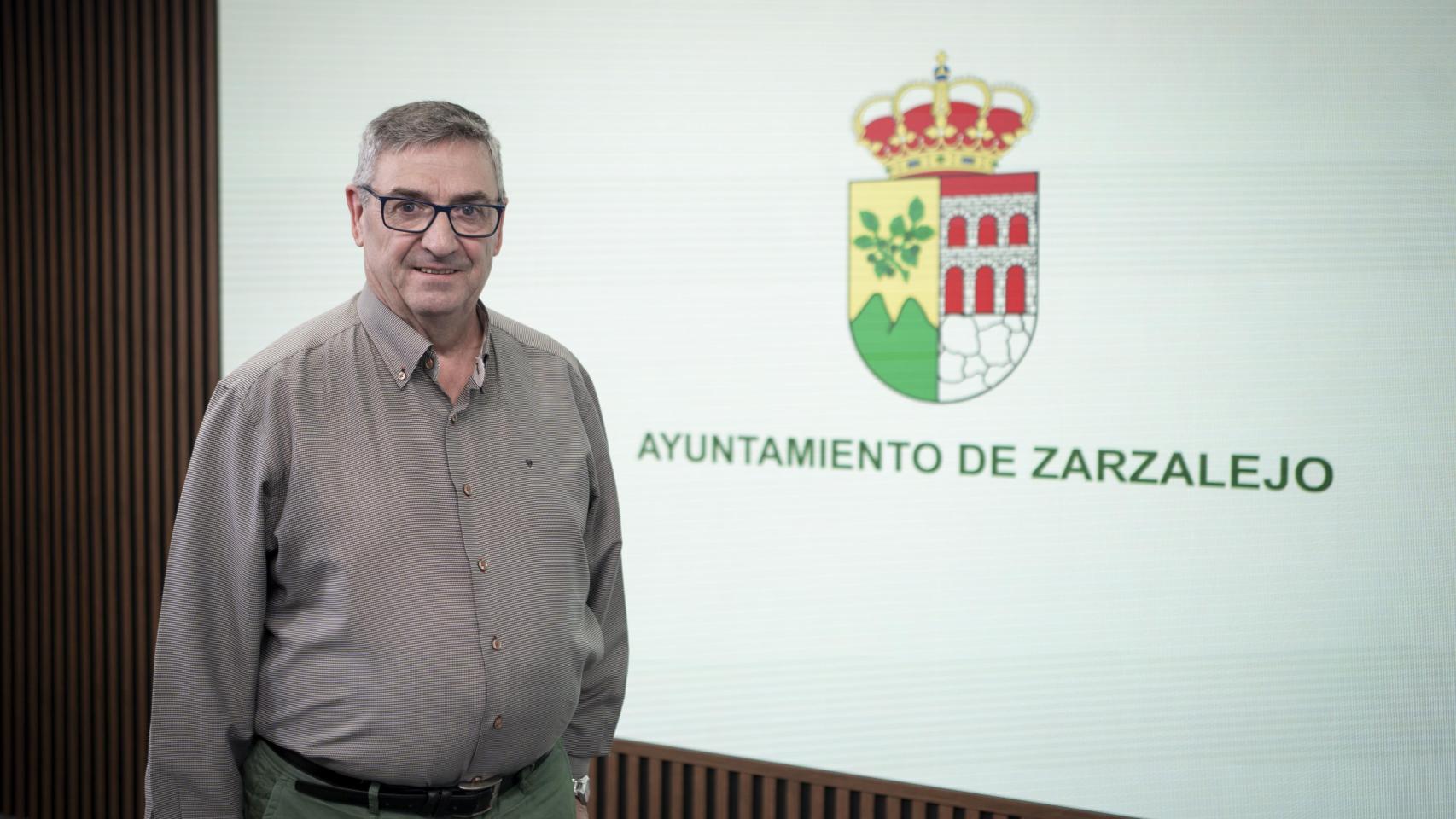


The inhabitants of Zarzalejo, a municipality located in the western mountains of Madrid, are called the ‘Caribs’. It’s not that they have a tropical climate, grow cassava and seafood with coconut. He got the nickname Philip II.
Legend has it that the king was the first to give them this nickname due to the violent response of the residents when the monarch thought of building what is today the town in this area. Monastery of San Lorenzo de El Escorial.
“They say they threw stones at him. And he said he was leaving there because they were ‘Caribs’.” The one who tells the story is Rafael Herranz, who regained the mayoralty of Zarzalejo in the elections on May 28.
Interview with Rafael Herranz, mayor of Zarzalejo Image: Javier Carbajal Edition: Sara Fernández
For him, his neighbors are not indigenous to the Antilles, but they are not easy to please either. They ‘confront’ him as they did with Philip II and call him “grubby”, as he himself admits, for not spending money on things that “are not necessary.” ‘But what don’t you want to spend the money on?’, we asked him. “I don’t know, about things that aren’t important,” he says while laughing.
QUESTION: You have regained the mayor’s office, but it is not your first time with the baton. What do you expect from this legislature?
ANSWER: Above all, we have pending projects focused on sports and public health. We are trying to cover two sports courts, one above and one below, because you already know that with our geography we have to have everything duplicated. [El municipio tiene dos núcleos: el histórico y la zona de la estación]. We are also going to improve the sewer collector, which is very bad, and we are going to invest 11 million euros. And then, for example, we want to build a new health center in the area below, since the existing one is very deteriorated. We are fighting with the Ministry of Health, to see if something can be done.
Q: That particularity of having two population centers… Does it bring you problems?
A: If something is done in the area above, those below protest, and vice versa. But it must be recognized that the largest population is below. For example, we built the school we created in the previous legislature below. It is where there are the greatest number of students. We have 115 students downstairs and only 40 upstairs. The most normal thing is that investments are made where there are more children.
“People do not want to get involved in the lists of small towns because it is a city council where we do not receive a salary”
Q: And does that affect at the electoral level? It now has four councilors from the Popular Party in the City Council; Then there is a councilor from the PSOE, who has left the party and is with you, and four others in the opposition. Things are tight.
A: We always get more votes down than up. But government for all equally. When I showed up, the PP was getting a councilor or two. I managed to get five with an absolute majority. Now, when I retire, I hope that the popular group continues to move the people, since the Community of Madrid is almost always governed by us.
Q: In a municipality like yours, with 2,000 inhabitants and two towns, is it difficult to find candidates for the lists?
A: Yes, it’s complicated. People do not want to get involved because it is a town hall where we do not receive a salary, only 1,100 euros for the Governing Board. The mayor earns the same as the councilors. It’s difficult. Everyone has to work on something else, and when it comes to making the lists, many go with you to help, but then they don’t want to get 100% involved.

Q: And what is your relationship with the opposition?
A: Well, so-so. They play their role as opposition, but sometimes they could be more restrained. In the last legislature, due to changes between them, we ended up agreeing and governing jointly. There were no problems, but sometimes they screw up.
Q: It is striking that in a small town Podemos is present and the PSOE has practically disappeared. Does the municipality have any special idiosyncrasies for a party of this type to have taken over the PSOE?
A: Well, it’s a long story to tell, but in the last legislature, Podemos and the PSOE divided the mayor’s office, one for two years and the other for two years. There were two or three mayors from Podemos, they ended badly and in the end the councilor who was in the PSOE stayed with us, seeing that it was impossible to govern with them.
Q: Did you have to fix many things from those previous years?
A: Yes, especially the first two years of Podemos were complicated. The PSOE mayor, with more experience, managed to direct the situation.

The mayor of Zarzalejo during his interview with El Español.
Q: We were talking about the municipality having a school and health center, and that they will fight to improve it. But perhaps the biggest deficiency is transportation? What do you ask of the Government of Spain and the Community of Madrid to improve it?
A: We have been asking Renfe for more than 30 years to increase the number of trains, but the trains are deficient. Although we don’t have many users, we could use more trains. Many residents prefer to go to El Escorial, where there are trains every hour. In addition, we are asking the Department of Transport for more buses to better connect with hospitals and schools. One bus every hour would be enough.
Q: In the Community of Madrid there is a lot of aid for small towns. Do you feel in no man’s land because you are a little big for some aids and too small for others?
A: No, we receive a lot of aid from the Community of Madrid. Almost all of them are aimed at towns with less than 5,000 inhabitants, and we are within that group. The Community of Madrid gives us a lot of help, whether for personnel or investments. In the case of the national government it is something different. In these four years with the PIR they have given us 2 and a half million that we are going to invest in gardens, street cleaning… In City Councils like ours, which when I joined there was not even a penny, all that help is very good for us.
Q: Many municipalities in your area complain about the lack of Civil Guard. Is it a problem that affects you?
A: Yes. Also, since we don’t have local police, we notice it a lot. It is true that when we have a problem they come quickly, but we would like them to be more present on a daily basis due to graffiti, noise and things like that.
“We have asked the Government of Spain for aid for DANA and we have not received a single penny”
Q: The Civil Guard depends on the Government of Spain. What more do you ask of Pedro Sánchez’s Executive?
A: Directly, it doesn’t have many powers, but we do ask for help for DANA and we don’t receive a penny. When it happened we had many streets and roads flooded and some of our machinery broke down. It is not a lot of money, 80,000 euros, but for a town like ours it is quite a lot.
Q: In Filomena, your municipality registered a death. How did it affect the municipality?
A: It was a very complicated situation. A train got stuck at dawn and we had to help the Civil Guard to transport them to the town and give them lodging. When they told us in the morning that there was a person, we were scared because we thought it was someone from the train we had left behind. In the end, it turned out that he was a conductor who, on the way to the train, had a heart attack. It was a very great misfortune.
Q: In your municipality they live off tourism and livestock, but they also have an important Central Lechera Asturiana factory. How does it influence them? Is it a lot of work?
A: There is one for milk and another for feed. There are about 150 employees who work in three or four shifts. That is very good for the people and not only because it provides work, but because economically, the IBI collection helps us a lot.

The garbage rate in Zarzalejo will be noticed, above all, in the part related to pruning.
Q: In 2025 you will have to implement a garbage tax due to a European directive. How do you plan to manage it?
A: As we can. We don’t have it all bad because, a few years ago, we bought a truck and containers to transport garbage to the Pinto plant, which previously cost us between 40,000 and 50,000 euros annually. Thanks to that, since we already paid for the transfer, we are going to try to upload it as little as possible. But everything related to the collection of prunings and junk will have to go up.
Q: Your municipality is very close to the Monastery of El Escorial and the Valley of the Fallen. Can the resignification of Cuelgamuros affect tourism?
A: We mainly connect with San Lorenzo through our routes. They make them from San Lorenzo or vice versa and that’s how they know us. So no, it won’t affect us much.
Q: And do you have any important tourism projects for this legislature?
A: We are going to make a very relevant expansion of the Guijo viewpoint. It is one of the most significant points of our town because it has very good views of Madrid.
The mayor’s questionnaire
Rafael Herranz, mayor of Zarzalejo, answers the questions from EL ESPAÑOL’s quick questionnaire Image: Javier Carbajal Edition: Sara Fernández
The mayor of Zarzajelo has a dream: to have a new health center. He knows that he will have to fight against many authorities and explain to his neighbors in which of his two towns to locate him, but, as he himself confesses, it is a struggle that he is going to ‘fight’. Let the counselor, Fátima Matute, prepare.
